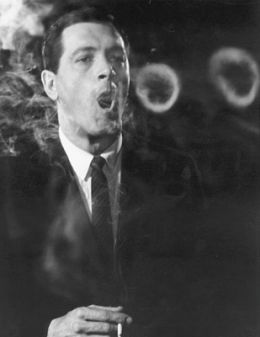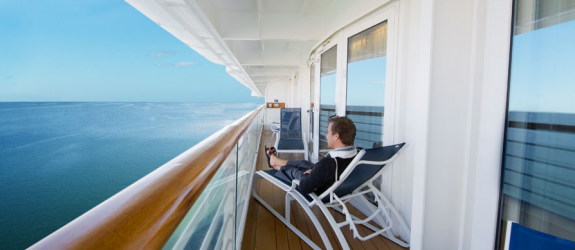
Smoke Rings (via Kathryn Vercillo).
America is coming down hard on smoking in public. Every year, more U.S. states ban smoking in public at a variety of venues and locations. First it was planes, then it was restaurants, followed by bars. And soon, smokers will lose some of their favorite and most scenic smoke spots to the U.S.’s onslaught of smoking bans.
Some of the smoking places revered by smokers are public, but at least one new ban involves private spaces, which has many tobacco enthusiasts heated. Here’s a look at some of the details of new bans that have hit various parts of the U.S.
The Minnesota State Fair
For the first time ever, the Minnesota State Fair, which started on August 22nd and will end on Labor Day, has banned smoking throughout the fairgrounds. Smokers are only allowed to light up in 18 designated smoking areas. Campgrounds and parking lots are also “smoke OK” zones. Designated smoking areas have benches so that people can sit down while they smoke.
Police at the Minnesota State watch fairgoers extra closely in order to spot smokers (via Star Tribune).
“The idea is that we are trying to accommodate both people who want to smoke and those who don’t wish to,” said fair spokeswoman Brienna Schutte. Despite the benches, many smokers still consider it inconvenient, and far from a perfect compromise.
Along with not being able to smoke on the vast majority of the fairgrounds, smokers aren’t allowed to smoke at the outdoor dining areas like they could last year. That means that if they want a smoke right after a fatty, deep fried meal, or even more importantly, a post-brew stog, they will have to walk a long ways to a designated smoking area.
Fairgoers will not be arrested if they are caught smoking outside of designated smoking areas by local authorities. They will instead get a gentle reminder to put out their cigarette and smoke in one of the 18 designated areas.
Hawaiian beaches
Starting January 1st of 2014, a new Hawaii smoking ban will make smoking on some of the world’s most beautiful beaches illegal. Hawaii will join a number of U.S. states like New York and California that already have similar bans in place. Hawaii’s parks, bus stops and swimming pools will also be affected. Although smokers may feel that there’s nothing quite like a cigarette with an ice cold Corona on the beach, the state of Hawaii has some valid points.
Cigarettes littered in the sand can make a beautiful beach unpleasant (via Dreams Time).
Secondhand smoke disrupts people’s enjoyment of fresh, pristine outdoor places like the beach, where people try to get away from the hustle and bustle of their everyday lives. (Speaking from experience, the two chain-smoking Egyptian guys in my apartment definitely disrupt my enjoyment of coming home from a long day of work.) There’s something soothing about the smell of sand and fresh ocean air that cigarette smoke intrudes on.
Hawaii doesn’t just want to keep the air of its world class beaches clean. It also wants to make sure that the ground remains clean and litter free. It’s a known fact that cigarette butts are a prevalent and noisome form of litter. A Hawaiian beach littered with them would not only get on people’s nerves, but it would rob the beach of its pristine beauty.
Starting January 1st, Hawaii state lifeguards will be handing out $100 fines to violators of the new smoking ban. A state-wide campaign will soon be initiated to inform the state’s population of the legislative changes. Changes will begin to happen in about four months.
Cruise ship balconies
Many cruise ship companies are jumping on the no-smoking bandwagon this year. Disney Cruises, P&O, and Cunard Line are specifically banning smoking on customers’ balconies, which are considered private spaces. That fact has left some people upset.
Smokers on cruise ships will have to venture to the top of the vessel or to designated smoking areas to enjoy a cigar or a cigarette on the boat. Advocates of the smoking ban claim that the majority of customers don’t smoke, so it wouldn’t effect that many people. Additionally, P&O said that it received a lot of complaints from customers trying to enjoy their balconies while dealing with inhaling secondhand smoke.
Operators of the ship are also worried about potential fires from smoking that could wreak havoc, considering the size of the ship and limited exit options. (The real worry, I think, would be watching out for icebergs, underwater reefs and negligent captains.)
